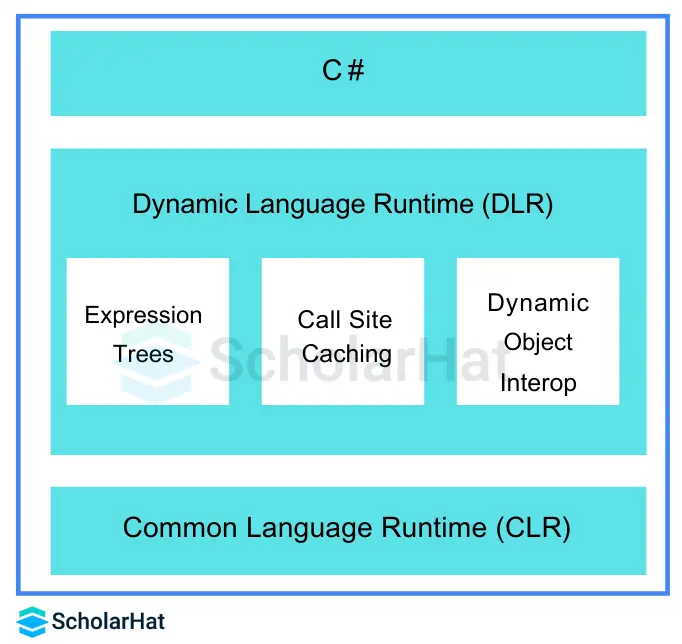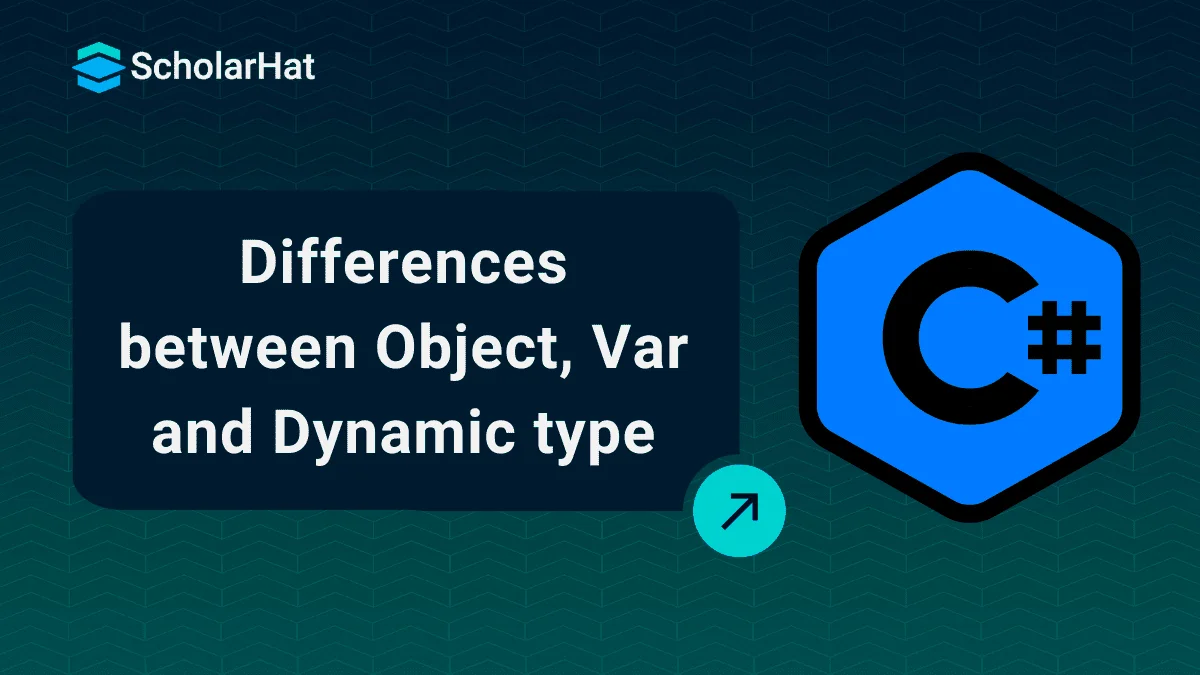20
FebDifferences between Object, Var and Dynamic type
Implicit Types in C#: An Overview
C# is rich in data type. C# provides several different ways to represent variable types such as Object, Var, and Dynamic to store data of any type. In this C# Tutorial, we will explore more about Implicit Types which will include object vs var vs dynamic, differences between object, var, and dynamic in c#, and, when to use var object and dynamic.
Enroll in the C Sharp Full Course For Free to master implicit types and other core C# concepts!
What are Object, Var, and Dynamic type
Object:
- The object or System.Object is the base Type for all other types in C#.
- It can store any value and any other Type can be implicitly converted to it:
- It is the best way to declare variables without a type though.
- To use an object we need to cast it back to the required type each time.
Syntax
object type_object_1 = “hello world”;
object type_object_2 = 55; // Value type
object type_object_3 = true; // Value type
object type_object_4 = new MyCompany(); Var:
- The ‘var’ is used to declare an implicitly typed variable.
- It is type-safe as the C# Compiler will determine the type based on what we initialize the variable to.
- Var is only used for variables defined in a method body.
- It is not used as a return type
- Var cannot be set to null (i.e. var student= null; is not valid)
- Var must be initialized (i.e. var student; only declaration is not valid either)
- As with an explicitly declared variable, a ‘var’ cannot be re-assigned to another type.
Syntax:
var type_implicit = “hello world”; Dynamic :
- C# was 4.0 introduced a new type called "Dynamic".
- It is a new static type that is not known until runtime.
- At compile time, an element with it is assumed to support any operation so we need not be worried about the object, whether it gets the value from COM, the DOM, from reflection, or anything else in the program.
- Before dynamic errors are caught at runtime only.
- But, The dynamic type in C# uses the Dynamic Language Runtime (DLR).
- Hence, The dynamic status is compiled into a variable-type object that is dynamic at compile time, not at run time.

Syntax:
dynamic type_dynamic = “hello world"; Difference between Object, Var, and Dynamic type
Let's see Object vs. Var vs. Dynamic type variables:
Read More - C# Interview Questions For Freshers
What do you think?
Understanding the differences between object, var, and dynamic is crucial for writing clean, maintainable, and efficient C# code: object is the base type for all types in .NET and requires explicit casting to access specific members, var allows implicit typing at compile time and making code concise while still being type-safe. dynamic provides maximum flexibility by deferring type checking to runtime, but it sacrifices compile-time safety and may cause runtime errors if misused.
The tech industry needs full-stack .NET experts, with 22% job growth projected by 2026. Join our Full-Stack .NET Developer Certification and lead the way!
FAQs
Take our Csharp skill challenge to evaluate yourself!

In less than 5 minutes, with our skill challenge, you can identify your knowledge gaps and strengths in a given skill.











